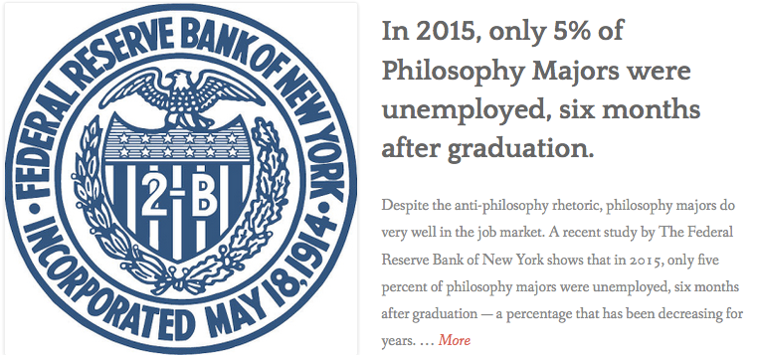Engaged Citizenship
Studying philosophy allows you to develop the skills and understanding to be a more engaged citizen. Critical thinking and dialogue help you to think about difficult issues and to engage with many points of view. Courses in ethics, political philosophy, or environmental philosophy (to name a few) will deepen your understanding of the world and how you can make a difference.
Career Success
What are you going to do with a philosophy degree?!
Philosophy majors have had success in a wide variety of careers: business, tech, journalism, law, academia, medicine, and more. The skills you need to master in philosophy—critical thinking, clear writing, critical reading, creativity, dialogue, and problem-solving—are highly valued by employers. In fact, philosophy majors have higher average salaries than any other major in the humanities (sorry, English majors!).
The Earning Power of Philosophy Majors
Ready to Declare Philosophy as Your Major?
mailto:neely.santeramo@colostate.edu




